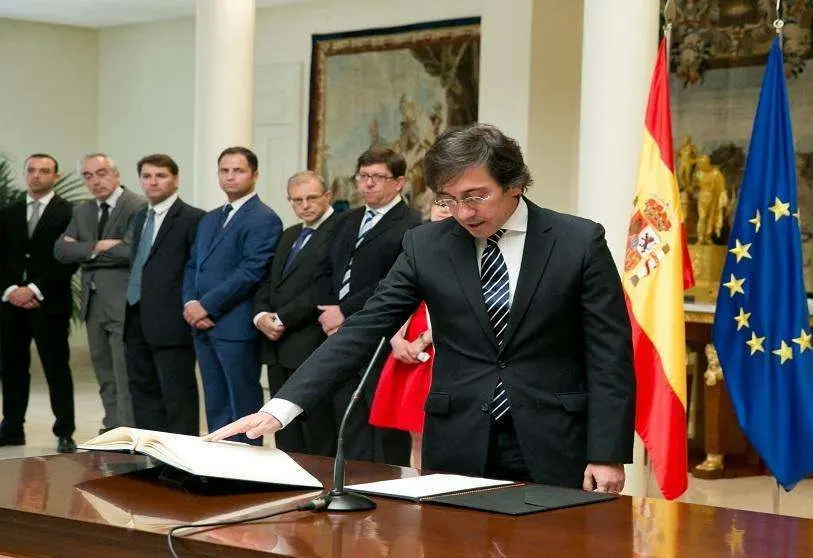El inicio de un posible deshielo en la relación entre España y Marruecos

The diplomatic crisis between Spain and Morocco seems to be at an impasse after reaching a point of maximum tension last May with the entry of more than 10,000 irregular migrants into the autonomous city of Ceuta. Relations between Madrid and Rabat have never been easy, and the two countries have had many disagreements.
Even so, the latter can be considered one of the most serious, and on this occasion even the European Union had to intervene in the conflict. The entry of Polisario Front leader Brahim Ghali into Spain to be treated for COVID-19 in a hospital in Logroño raised hackles in Rabat, which accused Sánchez's government of acting in a manner 'contrary to the spirit of partnership and good neighbourliness'.

Morocco claimed that Spain had failed to report Ghali's presence in its territory, as well as his registration at the hospital under a false identity. The Spanish government justified his hospital stay "for humanitarian reasons". During his stay in Spain, the Polisario Front leader testified before the Audiencia Nacional, accused of alleged crimes against humanity and genocide. The Spanish Minister of Foreign Affairs, Arancha González Laya, has already stated that, if the justice system considers that Ghali should appear, "the government will not stand in the way".
Ghali, who denied all the accusations, left the hospital in Logroño for Algeria after the judge of the Audiencia Nacional, Santiago Pedraz, ruled out, for the second time, applying any of the precautionary measures requested against the Polisario Front leader. Although Brahim Ghali is no longer in Spanish territory, the diplomatic crisis between Spain and Morocco has not yet been resolved.

Brahim Ghali's presence on the peninsula has provoked a cascade of reactions, particularly from the Alawi kingdom. Despite the explanations provided by the Spanish government, Rabat decided to cut off cooperation on migration issues. In an interview with a Moroccan channel on 16 May, the director of the Moroccan Judicial Police, Mohammed Dkhissi, claimed to have suspended cooperation and police coordination with his Spanish counterparts while waiting for Spain to correct its mistake in receiving Brahim Ghali. This led to the entry of around 10,000 irregular migrants into Ceuta in the face of the impassivity of the Moroccan authorities.
Following the migration crisis in Ceuta, Rabat recalled its ambassador in Madrid, Karima Benyaich, who is still in Morocco awaiting the resolution of the diplomatic crisis between the two countries. One of the Alawi kingdom's latest actions as a result of the conflict has been to cancel, for the second consecutive year, Operation Crossing the Strait with Spain, leaving thousands of fellow citizens without "viable" options to return to the North African country for the summer season.

Brahim Ghali represents the tip of the iceberg of an even bigger problem that has long been entrenched between Spain and Morocco, the supposed "Moroccanness" of Western Sahara. Last December, former US President Donald Trump recognised Morocco's sovereignty over Western Sahara in exchange for normalising relations with Israel under the Abraham Accords. This recognition by the US has led Morocco to adopt a more belligerent position, and it has tried to get other countries, especially European ones, to follow the same path as the US.
However, contrary to Rabat's expectations, European countries continue to advocate a solution within the framework of United Nations (UN) resolutions, a fact that has led Morocco to engage in various diplomatic crises with both Germany and Spain.

The diplomatic crisis between Madrid and Rabat is currently entrenched. Spanish Prime Minister Pedro Sánchez, in the context of a cabinet reshuffle, has appointed a new foreign minister, removing González Laya, who has been the visible face of the conflict with Morocco. José Manuel Albares, Spain's new foreign minister and former ambassador to Paris, wanted to send a conciliatory message to Morocco at his inauguration, underlining his intention to "work with our allies and friends" in a clear reference to the neighbouring country.
Furthermore, according to Spanish daily El País, Spain is seeking to negotiate a revision of its bilateral relations with Morocco in order to put an end to the diplomatic crisis between the two countries. The two countries have reportedly maintained direct contact after a period in which communication has been maintained only through intermediaries. El País maintains that the ambassador in Madrid, Karima Benyaich, is said to have met with the Spanish ambassador in Rabat, Ricardo Díez-Hochleitner, and the director general for the Maghreb, Eva Martínez.

Spain's position is that 'the crisis should not be treated as an isolated episode to be settled as soon as possible' and that 'if there was a mistake, it was more than atoned for with the replacement of González Laya and, in any case, it would not be exclusive to Madrid', according to diplomatic sources reported by the Spanish daily. They also say that it will not be easy to reach an agreement and that negotiations will take time. "The risk is to close the crisis falsely and for it to be repeated after a while", according to El País, according to the sources consulted. In short, Madrid is proposing a total review of relations with Rabat in order to clarify the thorniest points and ensure that episodes such as those in Ceuta are not repeated.










